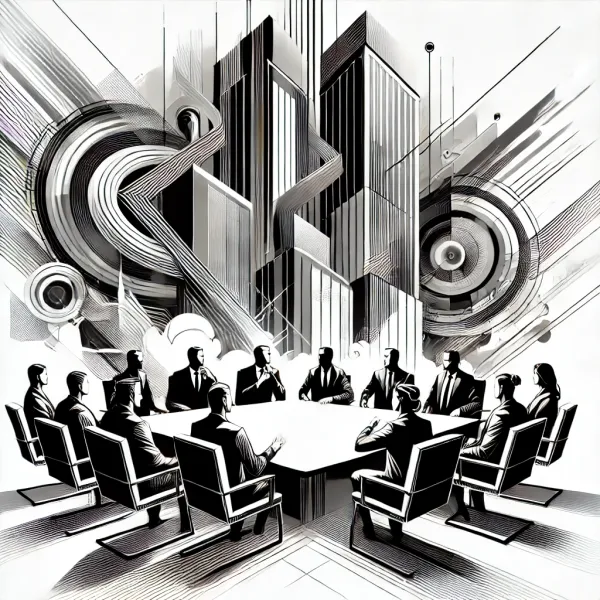How Does Personal Branding Affect Your Present and Future?

What Is A Brand? My Observations Suggest That Your Personal Brand Is That Thing, Your Thing, That Sets You Apart From The Competitive Crowd In The Eyes Of Your Audience. I Read In A Book That Your Brand Is The Word You’ve Reserved In People’s Heads. Even If It’s Not Just One Word, It’s Crucial That It’s Something Focused. And Here Is Where Our Deliberate Efforts Come In. "Jack Of All Trades" Isn’t Always A Good And Useful Brand For Us.
Nowadays, with drastically increasing competition in practically all areas of life and business, personal branding is becoming ever more crucial for success. I’ll try to shed some light on how important branding is for each of us—from employees to entrepreneurs, from yoga instructors to mafia bosses.
What is a Brand?
My observations suggest that your personal brand is that thing, your thing, that sets you apart from the competitive crowd in the eyes of your audience. I read in a book that your brand is the word you’ve reserved in people’s heads. Even if it’s not just one word, it’s crucial that it’s something focused. And here is where our deliberate efforts come in. “Jack of all trades” isn’t always a good and useful brand for us.
Also, there’s something very important—if we don’t proactively take care of building our brand, others will do it for us. And we might not like the result.
Examples of good personal brands include:
- “The best Facebook marketing expert.”
- “The youthful-looking guy with abs who dances with models on Instagram.”
- “The master of the backhand.”
- “The guy you go to when you want breast implants.”
Here are a few examples of negative personal branding that some people allow to “build itself” instead of working on it:
- “The guy who always has reasons why something can’t be done.”
- “The creep who treats women poorly.”
- “The quitter who gives up when it gets tough.”
- “The guru who has no real experience in his field, only theories and chest-thumping.”
- “The dietitian caught eating pizza.”
As you can see, brands come in all sorts. How do you build a brand? By doing things in a way that defines us as we want to be seen by others (and as we truly are inside). A fake brand quickly cracks, so I wouldn’t advise anyone to pretend to be something they’re not.
If we have to summarize about branding:
First: Be someone and know it. From being a good parent to a record-breaking runner, know your superpower.
Second: Express your true self in every situation. Show your real self, not a fake and powdered mask. Be a role model.
Third: Carefully choose your audience. You don’t need to build your brand on a global scale. It’s enough to select the community where you want to shine.
Thinking about the third point, let’s consider more about the audiences, the communities where we try to build our brand.
Who Are Your Audiences?
What is an audience? In this context, it means the people before whom we express our brand and try to engrave it in their minds.
How do you show you’re a solid manager? By acting like one with your team and colleagues.
How do you build a brand as the best gastroenterologist? Treat patients and give your all, and don’t forget a little self-promotion where potential patients gather.
How do you become the greatest dad? By behaving appropriately with your children every minute and enjoying it.
How do people start thinking of you as the best designer? Do great designs? Work 14-18 hours a day. Keep up with the latest. Strive for perfection in every project. Your audience is your clients.
The key takeaway here is that it’s not necessary (and sometimes not possible) to build a personal brand that is recognized and established in the minds of people nationally or globally. We’re not always interested in being known by millions. Often, it’s about two or twenty people, but those who are important to us.
Why Is Personal Branding Important for You?
We don’t need to be professors in philosophical or logical sciences to realize a simple fact:
“People judge us and decide what to do with us—what to say, whether to help us, whether to meet with us, etc.—based on what they know and think about us.”
If they know nothing about us, their reaction is not under our control. If they know bad things, they won’t react in our favor. But if they know what we want them to know about us, then we can expect (with a great likelihood) the reaction we need.
This applies in professional circles, at the workplace, in business, as well as in personal life and relationships with friends, acquaintances, neighbors, and relatives.
I can even give an example from high school. When you’ve built a reputation as the “good boy” and you get into trouble where it’s unclear who is at fault, the slaps aren’t yours to receive (“it couldn’t possibly be Borilcho who did it”), but someone else involved, especially if one of the suspects has a “bad boy” reputation.
Whenever we deal with people, their reaction depends on their perceptions, emotions, and their impressions. If we’ve positioned ourselves correctly there, we can expect a much easier life and work.
Personal brand and reputation are why some people always find closed (or slamming) doors, while others never step off the red carpet of success.
Let’s now look at some specific cases…
Applications of Personal Branding and Reputation
How can a good brand make our life and work easier, and how can a bad one darken our daily life? Here are a few ideas.
Job hunting
If you have a reputation and are known for your skills in a certain area—for instance, you have a blog on the subject, are active in the community, and have your own stance—even a cursory glance from your future boss/interviewer will set you apart from other candidates. Not to mention cases where, based on that reputation, you might not even need to look for a job because top employers invite you, even compete for you.
Promotion and career
Working in an organization is also linked to building a personal brand—within that organization—in the eyes of colleagues and management. If you’re “the lazy one who slacks off,” you’ll hardly get a promotion or bonus. If you’re “the cool guy who works like a machine,” you’ll always get what you want, and easily.
Freelance professions
It’s an understatement to say that personal brand and reputation are important for freelancers and professionals. It’s practically everything. A good reputation brings new clients. A bad one turns even existing ones away.
Consultants and coaches
I mention consultants and coaches separately because, realistically, their product is their reputation. They sell themselves and their brand. While a designer who isn’t very good at self-promotion might still show beautiful designs, a consultant can only rely on their reputation.
Entrepreneurs
Entrepreneurs are people of character. To a large extent, this character builds their reputation. But a personal brand like “the jerk who doesn’t pay suppliers on time” or “the fox who has cheated dozens of his clients” are not the associations we want.
Managers
A manager’s authority is his personal brand. And his audience—his team and peers, as well as – of course – those above him. Your subordinates will treat you and be as motivated as you’ve inspired them with your personal presence. Your colleagues—managers and directors—will be as cooperative as you’ve commanded their respect. Your bosses will include you in bonus schemes more likely if they like you but also respect you.
Public figures
What to say here. All public figures float on the clouds of their reputation and personal brand. If those clouds dissipate, the fall is long and—ultimately—painful.
Experts (doctors, specialists)
Do you know a doctor (or another type of therapist) who books appointments for two months in advance and you literally can’t get in line? This is the result of a built personal brand and reputation. Have you seen posts in forums saying how incompetent a certain expert is? That’s the result of poorly managed personal branding and—primarily—the lack of integrity in its expression.
In summary—personal branding and reputation are important factors for our life, career, and business. Pretending they don’t apply to us doesn’t change things. It just leaves this important asset in the hands of others, instead of taking charge to shape and manage it ourselves.
The time dedicated to developing ourselves and building a personal brand and reputation is an investment that pays off richly over the years. Neglecting this treasure, however, can collapse entire careers.





